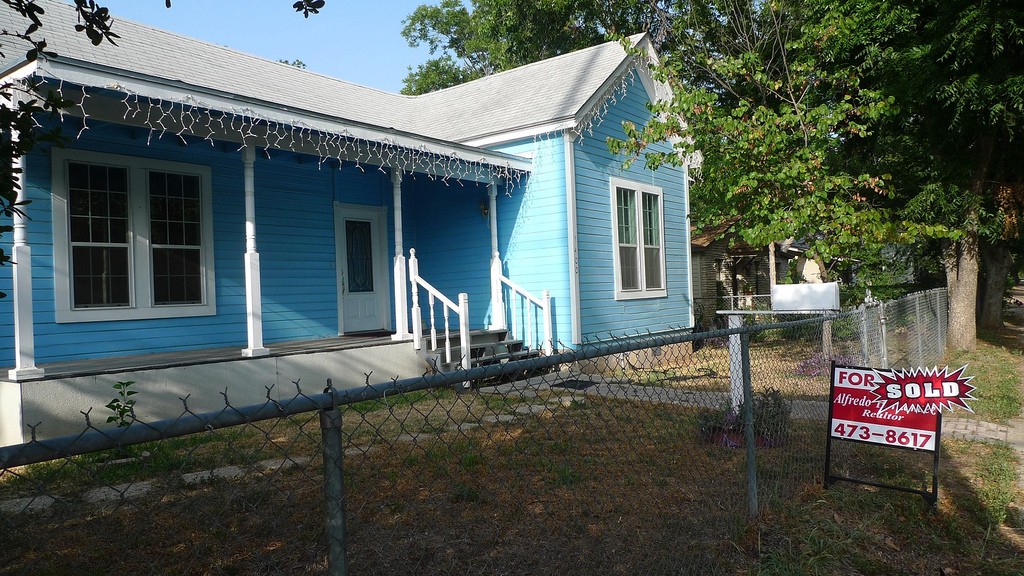The One Secret To Buying A House When You’re Young
Can you guess what it is?

One of the best gotchas of financial clickbait journalism is the promise of achieving lofty goals at a young age. A young person buys a house or an apartment “on their own,” on a salary that sounds impossibly low, causing a quiet rumble of anxiety that gets louder as you wonder why it is that you can’t buy a house or manage to find your own apartment or house or scrape enough to unshackle yourself from the chains of your student loans before 30.
All these stories have one thing in common. They are getting help. From their parents.
The Atlantic touched upon this very plain fact in 2015, pointing out very helpfully that those post-grads snapping up real estate usually have the benefit of having parents who were able to help with the downpayment. Their parents might have helped them with their college education, putting them in better financial standings than some of their peers upon graduation. Citing a Zillow study from 2014, the snowball effect of financial help from parents with both education and down payments creates a “funnel of privilege,” wherein wealth is essentially passed down generationally.
Your Friends Who Own Homes Got Money From Their Parents
This is essential knowledge to have for perusing the following stories, which bury the lede about home ownership at a young age.
Any headline that promises something that sounds completely impossible next to a picture of the New York City skyline tells me that something is up. This recent article from Refinery29 was the latest in this dubious trend.
How I Bought My Own NYC Apartment On A $50,000 Salary When I Was 25
“With the help of a good interest rate and a monetary gift from family that helped with the 20% down payment, my monthly payments are well below my $1500 limit.”
This bit from the New York Times’s often-infuriating “The Hunt” column caused a stir when it was published, mostly because the woman in question bought an apartment in a Housing Development Fund Corporation co-op building, which have income restrictions and are meant for low-income residents of New York, financing the down payment of that apartment with money from her father.
An Unexpected Route to Williamsburg
Ms. Huberman began to contemplate buying a place. She knew that her father, who is keenly interested in real estate, would help her with a down payment.
“He thought of it as an investment by way of me,” she said. “Throwing my money away in rent was making me nauseous.”…Having a future that is “not fragmented by one-year or 16-month lease renewals is really appealing to me.” Because she was able to make a large down payment, her monthly outlay is around $1,200.
This story is less infuriating, but the ever-common parental help is still present, though it was “augmented by savings.”
Polly Go-Lightly: Buying a New York City Apartment at the Tender Age of 22
With some $50,000 in the bank — a nest egg from my family augmented by savings that I’d stashed away by working in retail since the age of 14 — I settled on a budget of approximately $250,000 and began searching listings and seeking real estate agencies and brokers.
I’m not begrudging anyone whose parents are able to help them buy a house or pay off their student loans or handle their debt; as the saying goes, “I don’t know your life.” But these kinds of stories are infuriating because of their framing. There’s absolutely nothing wrong with getting help from your parents if you can, but treating the purchase of property and glossing over that fact isn’t helpful to people who might actually want to figure out how to buy property in their lifetime and are interested in how their peers did so in the first place. “My parents bought me a house” is obviously less compelling than “I bought a house at 17;” I get it.
It’s fine if there was help. Everyone’s lives are different. There’s no need to keep it a secret.
Is It Really A Secret That Some Young People’s Parents Help Them With Rent?
Support The Billfold
The Billfold continues to exist thanks to support from our readers. Help us continue to do our work by making a monthly pledge on Patreon or a one-time-only contribution through PayPal.
Comments